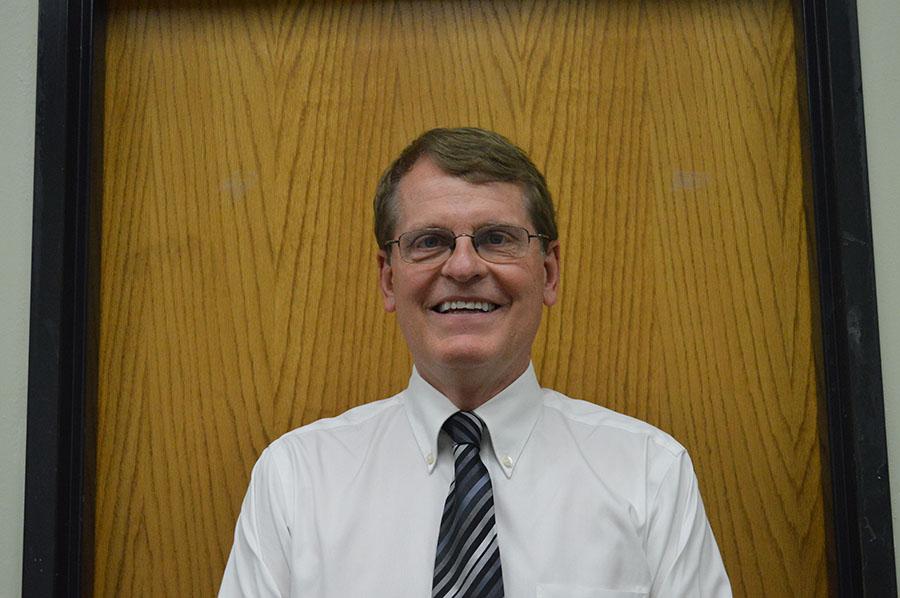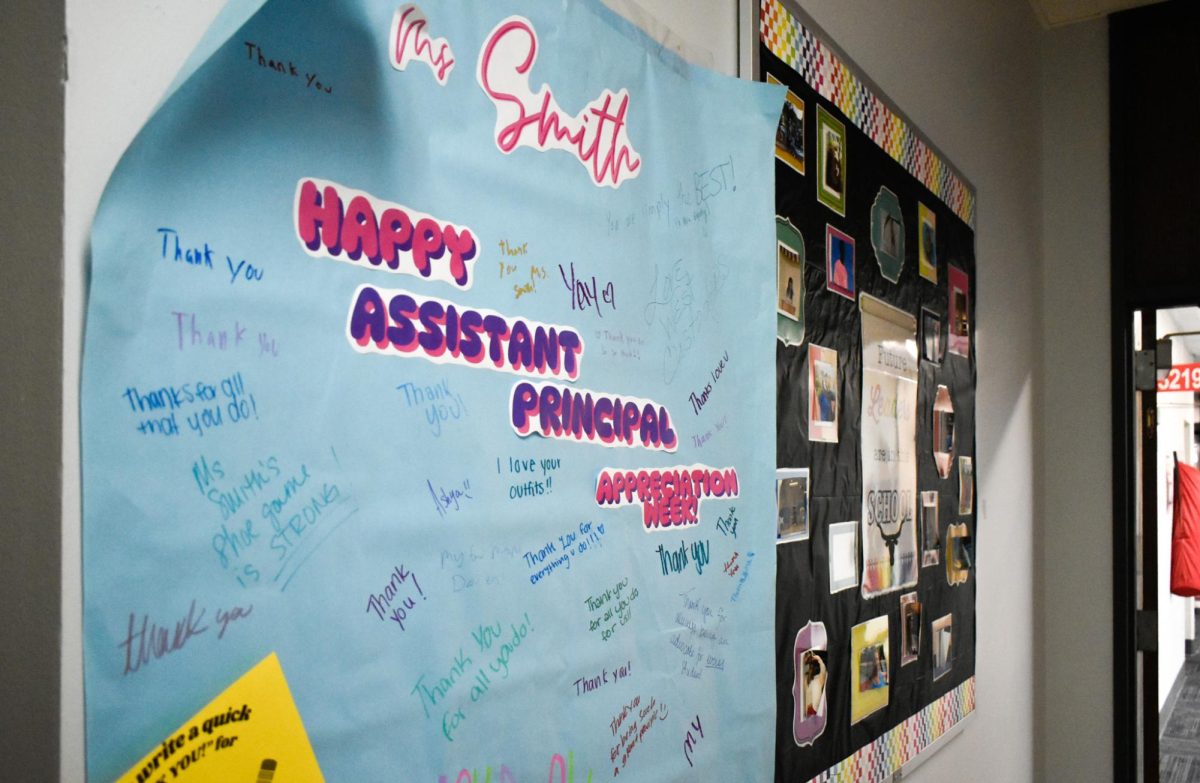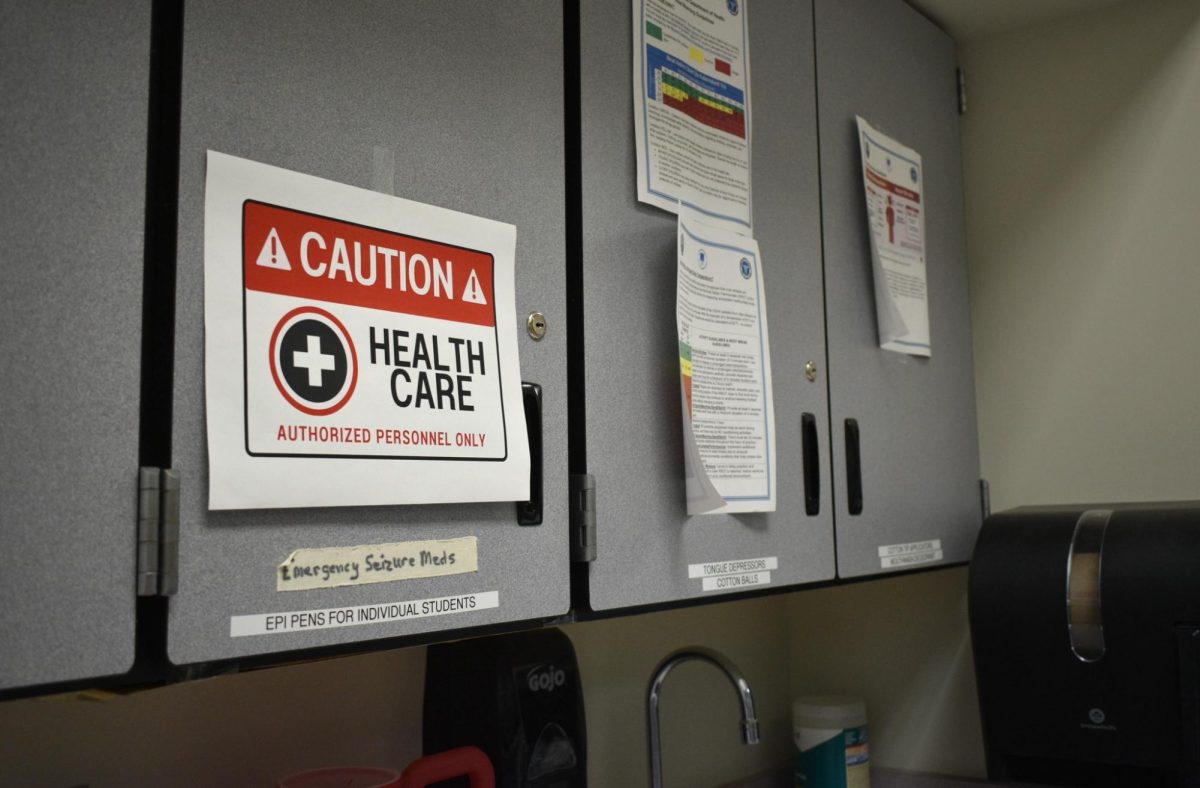“Students have a hard time getting up and getting concentrated and getting ready for the school day and perhaps the first two hours of the day are not their best performance,” Superintendent Dr. Keith Marty said.
Sleep. For some people it’s a time of restful comfort, but for high school students it’s practically non-existent in their busy lifestyles.
Sleep deprivation is ravaging America, and especially affects teenagers. Teenagers need about 8.5-9 hours of sleep, every night according to the KidsHealth organization. But a new study by the National Sleep Foundation revealed that 50% of teenagers are missing the sleep they need by almost 1.5 or more hours.
Michael Breus, a renowned doctor who is studying sleep said to Voice of America news, “Because of lack of sleep, people become more cranky, perform worse in school and sports and can cause drowsy driving.”
In response to this the National Sleep Foundation, scientists and Harvard Publications have conducted several studies and have found that school starting times, the influx of new technology and a natural reaction in which teen’s circadian rhythm, or sleep clock, is reset are all leading causes of sleep deprivation.
West High starts at 7:35 a.m. – almost thirty minutes later than most high schools according to the National Sleep Foundation. However many students are still missing the sleep they need.
“I go to bed at 10:30 p.m., and wake up at 5:00 a.m., sometimes 4:45 a.m.,”senior Lexus Carson said.
Carson is awake throughout the day for about seventeen and a half hours each day. According to an Australian sleep study, staying awake for eighteen hours or more can result in an deteriorative state of mind equal to a BAC (blood alcohol concentration) of .05, and 0.10 after staying awake for twenty four hours. The legally drunk BAC is .08. Students like Carson, are being subject to having a drunken like state of mind in order to wake up for school start times.
Due to compelling evidence, one school in Rhode Island experimented changing school times from 8 a.m. to 8:30 a.m. The difference was almost immediate. The school’s headmaster, Eric Peterson, commented to Voice of America news, “What was really astonishing was how many benefits and how significant the benefits were.” “In the research itself, we saw just over a 50% decrease in health-center admissions for fatigue, or fatigue-related illness, or rest requests. We saw almost a 35%decrease in first-period tardiness. Students reported that they were more alert. They were less sleepy during the day.”
Even Dr. Keith Marty,superintendent of Parkway schools, said, “Students have a hard time getting up and getting concentrated and getting ready for the school day and perhaps the first two hours of the day are not their best performance.”
At Columbia Public Schools in Missouri, start times were modified from 7:30 a.m. to 9 a.m. resulting in an increase of grades by almost a full letter grade in first and second hour classes. Additionally, in Kentucky’s Jessamine County, reported, “Since implementing later school starts in 2002, “attendance immediately went up, as did scores on standardized tests, which have continued to rise each year.” The schools also cut down on “passing time” and saved on bus expenses.” By lowering starting times, students benefitted tremendously as well as school.
Cancer, diabetes, heart disease, obesity and sleep deprivation. iPhones, Kindles and night lights. How are these things all connected? iPhones, Kindles, and night lights all emit blue light which suppresses people’s creation of melatonin, which makes a person fall asleep and wake up at the time their circadian clock tells them too.
All of this may make you want to throw your phone out the window. But before you do there are some simple yet effective things that you can do to help you get sleep and prevent damaging diseases from getting to you. According to Harvard Health Publications, using a red night light at night will help you rest better as it has the least power to stop your body’s creation of melatonin. By stopping the use of bright technology at least three hours before you go to bed you will help give yourself a good night’s rest. Also, being out in bright light during the day will actually boost your ability to sleep at night and brighten your mood while making you more alert. These are just some simple ways you can avoid your technology and move on to getting sleep.
Also, according to Harvard Health Publications, the adrenaline increase and inability to fall into a deeper sleep called REM sleep is due to the mental processing that takes place after you use technology.
Attendance secretary, Ann Lehman said, “They say – and I know this is true of myself – if you’re playing a video game or are on the computer, when you turn it off, your mind is still processing all of that. You should stop an hour before you go to bed. They said you should never check your email before going to sleep, because you’re thinking of the emails you’ve gotten and you’re still processing things and you should just be sleeping.”
A third reason for the growing sleep “epidemic” is a natural reaction to growing up. Everyone has a circadian rhythm that tells the body when to wake up and when to go to bed. In teens, the circadian clock is reset, making teens go to bed later, around eleven, and wake up later, around eight.
Sophomore Allie Collins said she has noticed this change in herself, “I wake up with an alarm clock and an alarm on my phone. It takes both to get up. It really does.” However, for schools purposes, teens must ignore their circadian clocks and wake up early. Schools are essentially asking teens to defy their own nature to come to school, resulting in moodiness and even depression in teens.
According to a study done by Medical News Today, this depression can cause, “It proposes that REM sleep is responsible for the neural stimulation necessary to develop mature neural connections. Supporting evidence for this is seen in how the number of hours spent in REM sleep reduces as one ages, and how sleep deprivation in early life can be a cause of behavioral problems, sleep disruption and decreased brain mass.”
Ultimately the amount of sleep you get is up to you. By choosing to focus on the sleep you get, you can perform better in sports, school, and will help yourself further down the road. Disease can be prevented and you will feel better than before. Your future depends on your dreams, and your dreams depend on your sleep. So help your future. Sleep.


![Leaning on the podium, superintendent Melissa Schneider speaks to Parkway journalism students during a press conference. Schneider joined Parkway in July after working in the Thompson School District in Colorado. “My plan [to bond with students] is to get things on my calendar as much as possible. For example, being in [classes] is very special to me. I am trying to be opportunistic [meeting] kids [and] being in [the school] buildings. I have all the sports schedules and the fine arts schedules on my calendar, so that when I'm available, I can get to them,” Schneider said.](https://pwestpathfinder.com/wp-content/uploads/2025/09/IMG_5425-1200x943.jpeg)


![Red, white and blue, the American flag holds the values of our democracy. The fight that we once endured has returned, as student journalists and senior correspondents across the country are losing their voices due to government control. “[Are] the White House and [the] government limiting free speech [and] freedom of the press? Yes [they are],” chief communications officer of the Parkway School District and former journalist Elisa Tomich said.](https://pwestpathfinder.com/wp-content/uploads/2025/03/Untitled-design-14.jpg)
![A board in the Parkway West counseling department displays pennants of selective universities. With a wide range of students interested in attending, it’s important that these schools have clear priorities when deciding who to admit. “[Washington University] had the major that I wanted, psychology, philosophy, neuroscience. That's a holistic study of the brain, and [WashU is] the only college in the world that offers that. That's the main reason I wanted to go; I got into that program,” senior Dima Layth said.](https://pwestpathfinder.com/wp-content/uploads/2025/02/Flag-1.png)

![Within the U.S., the busiest shopping period of the year is Cyber Week, the time from Thanksgiving through Black Friday and Cyber Monday. This year, shoppers spent $13.3 billion on Cyber Monday, which is a 7.3% year-over-year increase from 2023. “When I was younger, I would always be out with my mom getting Christmas gifts or just shopping in general. Now, as she has gotten older, I've noticed [that almost] every day, I'll open the front door and there's three packages that my mom has ordered. Part of that is she just doesn't always have the time to go to a store for 30 minutes to an hour, but the other part is when she gets bored, she has easy access to [shopping],” junior Grace Garetson said.](https://pwestpathfinder.com/wp-content/uploads/2024/12/DSC_0249.JPG-1200x801.jpg)

![Senior Sally Peters stands in the history hallway, contemplating her choices in the 2024 United States and Missouri elections on Nov. 5. As a member of Diplomacy Club, Peters has discussed key candidates and issues in contemporary American politics. “[As students], we're starting to become adults. We're realizing how much the policies that are enforced and the laws that make it through the House and Senate are starting to affect us. [Opportunities such as] AP [U.S.Government] and Diplomacy Club [make elections feel] a lot more real,” Diplomacy Club vice president and senior Nidhisha Pejathaya said.](https://pwestpathfinder.com/wp-content/uploads/2024/10/Flag-1-1.png)
![Mounting school pressure can leave many students overworked and overstressed. Schools must give students the necessary resources to help assuage student mental health issues and prevent the development of serious crises. “The biggest thing [schools] can do [to protect student mental health] is offer more time [to do work], like a study hall, or offer more support from teachers so that students don't feel stressed out and can get help in areas that they need,” senior Bhavya Gupta said.](https://pwestpathfinder.com/wp-content/uploads/2024/09/unnamed-4.jpg)
